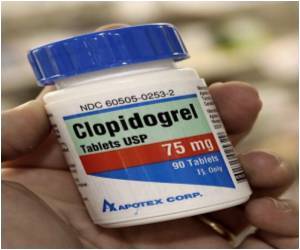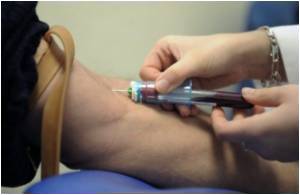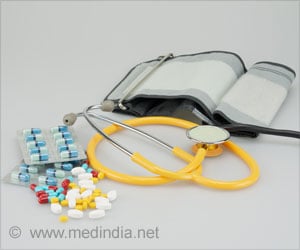Increasing the dosage of clopidogrel, an anti-platelet drug did not result in lower rate of non-fatal heart attack.

Matthew J. Price, M.D., of Scripps Translational Science Institute, La Jolla, Calif., and colleagues conducted the Gauging Responsiveness with A VerifyNow assay-Impact on Thrombosis And Safety (GRAVITAS) trial to determine whether high-dose clopidogrel is superior to standard-dose therapy for the prevention of cardiovascular events after PCI in patients with high on-treatment reactivity. The randomized trial included 2,214 patients with high on-treatment reactivity (measured 12 to 24 hours after PCI) with drug-eluting stents at 83 centers in North America between July 2008 and April 2010. Patients received high-dose clopidogrel (600-mg initial dose, 150 mg daily thereafter) or standard-dose clopidogrel (75 mg daily) for 6 months. The primary outcome measured was the 6-month incidence of death from cardiovascular causes, nonfatal heart attack, or stent thrombosis. Safety measurements included severe or moderate bleeding.
The researchers found that the rate of death from cardiovascular causes, nonfatal heart attack, or stent thrombosis was not different with high-dose compared with standard-dose clopidogrel in the patients with high on-treatment reactivity (25 (2.3 percent) vs. 25 [2.3 percent]). In an analysis, the event rates in the 2 groups after 30 days were (20 [1.9 percent] vs. 17 [1.6 percent]), respectively.
The reduction in on-treatment reactivity at 30 days and at 6 months after randomization was significantly greater with high-dose than with standard-dose clopidogrel. High-dose clopidogrel was associated with an absolute 22 percent lower rate of high on-treatment reactivity compared with standard-dose clopidogrel at 30 days and 6 months (40 percent vs. 62 percent; and 36 percent vs. 60 percent, respectively).
Severe or moderate bleeding was not increased with the high-dose regimen.
"In conclusion, high-dose clopidogrel for 6 months in patients with high on-treatment platelet reactivity 12 to 24 hours after PCI with drug-eluting stents did not reduce the rate of death from cardiovascular causes, nonfatal myocardial infarction, or stent thrombosis compared with standard-dose clopidogrel. The results of GRAVITAS do not support a uniform treatment strategy of high-dose clopidogrel in patients with high on-treatment reactivity identified by a single platelet function test after PCI. Alternative treatment strategies incorporating platelet function testing merit further investigation," the authors write.
 MEDINDIA
MEDINDIA




 Email
Email









